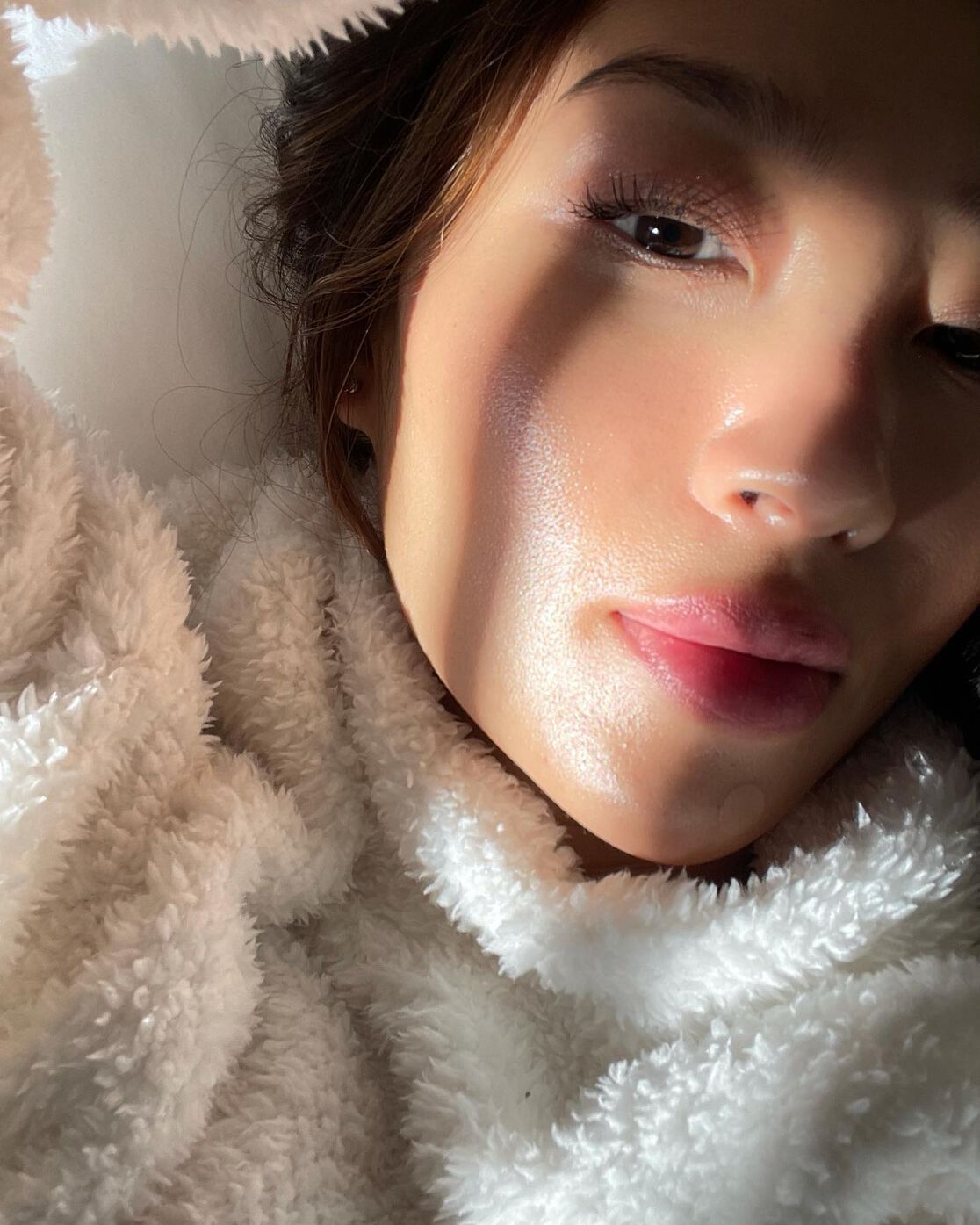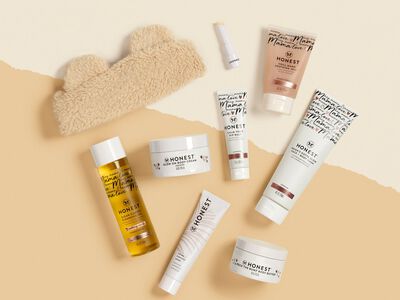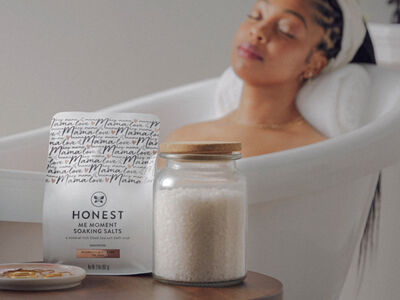Image shared by @yurisinata
What are Common Skin Types?
As you age, your body goes through many changes. Being the biggest organ of the body, your skin also changes with time. It can be impacted by factors like lifestyle, genetics, surrounding climates, and even the skincare and beauty products you use.
Your skin type is largely determined by the amount of water and oil in your skin, how much collagen your skin produces, how much hydration it holds in the layers, and how old you are. Puberty, menopause, and other hormonal changes can also impact your skin type. Different types will need different things for nourishment and health, but skincare products are a great place to start.
Oily Skin
An oily skin type can be characterized by a naturally oily T-zone (forehead, nose, chin), while the rest of the face is normal. It is oily without applying any moisturizer, serum, or lotions. Oily skin most often features large pores, blemishes, and a shiny complexion. For those of you that are prone to oily skin it is even more important that you tailor your skincare routine to suit your oily skin type.
Dry Skin
A dry skin type is naturally dry or parched when free of moisturizers, serums, or lotions is classified as dry skin. The dryness or flakey skin can be especially felt when making a face, or doing things like applying makeup, since the skin is less elastic. People with this skin type should develop a dry skincare routine that adds moisture back into their skin.
Combination
A combination skin type is a little oily on the forehead and nose area, but dry otherwise. Combination skin may also have patches of dry skin on the oily part, or oily patches on the dry areas of the face. It's important that you develop a combination skincare routine to best suit your skin type.
Normal
Skin that is perfectly balanced, neither oily, nor dry anywhere is called normal skin. Normal skin also features small pores that are difficult to see, and more often than not, accompanies an even skin tone.
Along with these types, you should also determine whether your skin is sensitive. Sensitive skin may react adversely to certain skincare ingredients so it’s best to know beforehand.
Sensitive Skin
A sensitive skin type is easily irritated and shows redness, rashes, inflammation, bumps, and/or breakouts frequently. Skin with conditions like eczema and rosacea are often prone to sensitivity.
Non-Sensitive Skin
Non-sensitive skin typically does not react aggressively to fragrances, preservatives, sunlight, common allergens, smoke, or other irritants. Oily and combination skin types commonly fall into this camp.
How Do You Identify Your Skin Type?
Good question! We have a little test. To do it, thoroughly wash and cleanse your face. Pat dry and leave your skin bare for half an hour. No products, not even moisturizer. After an hour or so, check your forehead, nose, and cheeks for any slicks or shine. If your skin is:
Normal / Combination
There will likely be some shine on the forehead and nose area. Check carefully to ensure you are not confusing your results with oily skin.
Oily
There will likely be oil and shine on the nose, cheeks, chin, and forehead areas. You can try the paper towel test, and blot your face to see where it picks up any oil.
Dry
Your face may look and feel parched and possibly tight. If you still aren’t sure though, try smiling or making a face.
Signs of Sensitive Skin
Remember that you want to know whether your skin is sensitive too, especially before trying any new skincare product or skincare routine. Some signs you may have sensitive include:
- Parched skin
- Prone to acne, rosacea, or eczema
- Reactions to chemicals and irritants
- Reactions to concentrated skincare products
- Reactions to extreme weather and temperatures
Reactions can look like:
- Redness and itching
- Rashes
- Flushing
- Dry patches
- Bumps
- Dilated blood vessels
Why Bother Knowing Your Skin Type?
Before investing in any skincare products and designing a skincare regimen for yourself, figuring out your skin type is essential so you know how to care for it effectively and avoid using products that are not suitable for your skin type. Unsuitable products could cause harsh reactions or you might find they simply don’t work and were wasted money.
Your skin type not only determines the skincare products you use, it also helps determine what kind of makeup products to use. Additionally, key steps in your skincare routine are often decided by your skin type too, like how often you exfoliate or apply a facial mask. Speaking of facial masks, your skincare routine is also a great self care ritual.
If you’re simply wondering at what age you should start using skin care products or the best skincare for mature skin, we’ve got you covered. Finally, if you still aren’t certain what products to use or how to determine your skin type, you may want to consult with a dermatologist for help.
https://www.sknclinics.co.uk/blog/the-importance-of-knowing-your-skin-type
https://www.flawlessskincheshire.co.uk/the-importance-of-knowing-your-skin-type/
https://arizonaderm.com/how-to-determine-your-skin-type/
https://gunillaofsweden.com/the-importance-of-knowing-your-skin-type/
https://apothederm.com/the-importance-of-knowing-your-skin-type/
https://www.skinmedical.co.uk/2016/08/importance-knowing-skin-type/
https://gunillaofsweden.com/the-importance-of-knowing-your-skin-type/
https://www.tatcha.com/blog/How-to-determine-your-skin-type.html
We aim to provide you with the most honest and credible information possible. This article was reviewed for accuracy by The Honest Team and was written based on trusted sources that are linked at the bottom of the article.
blog_review_statement




